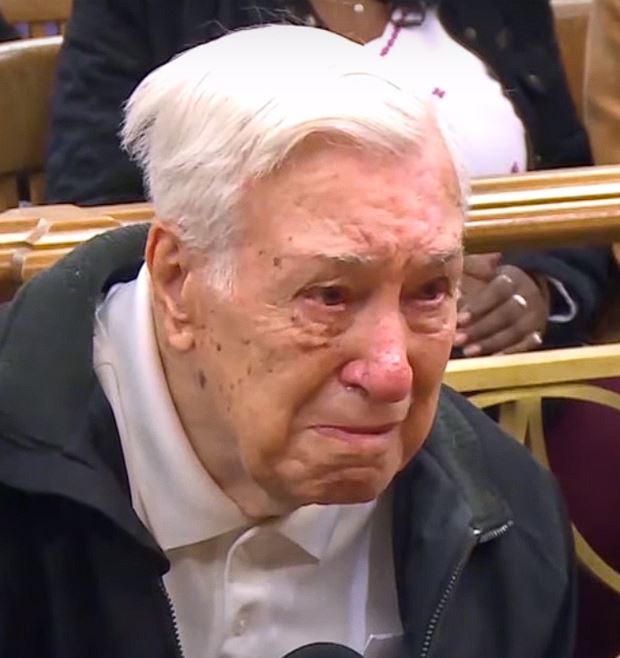The courtroom was silent as 96-year-old Victor Coella stepped forward. His hands trembled slightly as he adjusted his coat, standing before Judge Francesco “Frank” Caprio—a man known not only for his wisdom behind the bench but also for his deep compassion.
Victor wasn’t your typical defendant. He wasn’t reckless, nor did he have a history of speeding violations. Yet there he stood, accused of driving over the limit in a school zone. He now had to explain what had led him there.
“I don’t drive fast, Judge,” Victor began, his voice soft but steady. “I’m 96. I drive slow. And I only drive when I truly have to.”
Judge Caprio leaned in, curiosity written across his face. “And why do you have to drive?”
Victor hesitated for a moment before answering. But when he did, the entire room shifted. The gravity of his response carried more than explanation—it carried decades of love and sacrifice.
“My only son, Matteo, is 63,” he said quietly. “He’s been battling cancer for many years. Every two weeks, I take him to the hospital for his treatments. The hospital’s far, and public transportation just isn’t reliable. I drive him because… I love him. More than anything.”
Gasps and murmurs rippled through the courtroom. What began as a traffic violation had become something else entirely: a story of love, devotion, and the enduring strength of a parent’s heart.
Judge Caprio’s expression softened. “You’re a good man, Mr. Coella,” he said gently. “A father doing what he must, carrying the weight of love on his shoulders.”
Then, in an unexpected turn, the judge motioned toward a man sitting quietly nearby—his own son, Alessandro. A longtime part of the “Caught in Providence” courtroom team, Alessandro had grown up under the same kind of love Victor had shown his son.
“Daddy’s still taking care of him, right?” Judge Caprio said, the words hanging in the air like a blessing. It wasn’t just an observation. It was a tribute—to fathers everywhere, to unconditional love that never fades with time.
Silence filled the courtroom again. But this time, it was thick with emotion.
“I know life can put us in difficult situations,” the judge continued. “But the law must sometimes make room for compassion. And in your case, Mr. Coella, I see a man driven not by negligence, but by love.”
With that, Judge Caprio dismissed the case, wishing Victor and Matteo strength and healing in the days ahead.
The story didn’t end there. Word of Victor’s devotion spread beyond the courtroom. Neighbors recalled how he had quietly helped others over the years—giving rides, reading to schoolchildren, offering support with quiet humility. His story resonated deeply with the community. A man once unknown had now become a symbol of love and resilience.
Judge Caprio, too, reflected deeply that day. In his long career, few moments had moved him the way Victor’s did. It reminded him that justice is more than rules and consequences—it’s about recognizing the humanity in each case, the quiet sacrifices made behind closed doors.
At a community gathering weeks later, Victor was honored for his acts of kindness. Matteo, frail but proud, managed a smile from his wheelchair. The bond between father and son was undeniable, shining like a beacon for all who watched.
That evening, as the sun dipped below the horizon of Providence, one message echoed in every heart: love is the strongest law of all. In a world filled with noise and distraction, the quiet strength of a devoted parent can still move mountains.
Let Victor’s story serve as a reminder—acts of love, however small, can ripple outward and touch lives in ways we never imagine. And sometimes, the most powerful kind of justice is rooted not in punishment, but in compassion.
If this story moved you, share it. Let others know that in the end, kindness—especially in service to those we love—is what defines us.
